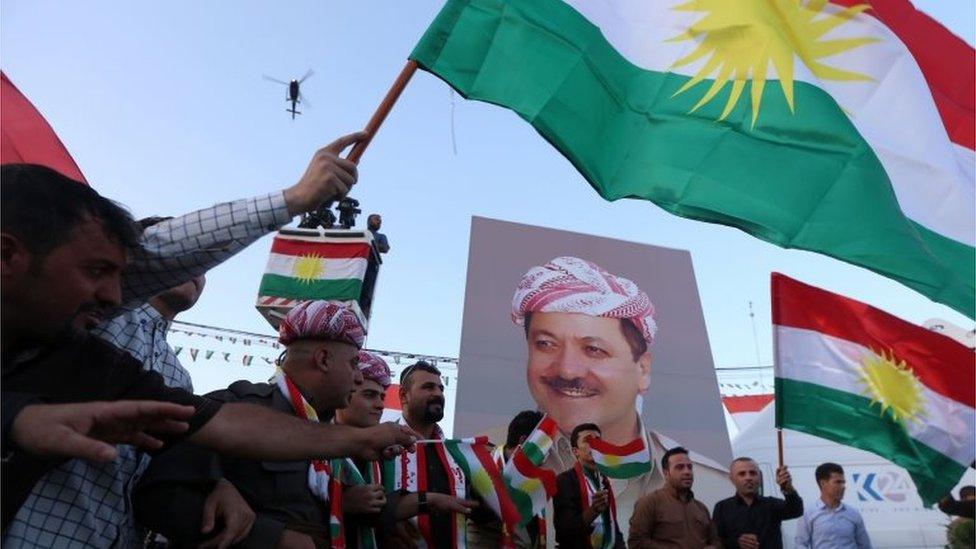Iraq halts international flights to Kurdistan Region
- Published
Passengers in Irbil give their views on the flight ban
Iraq's central government has suspended international flights to and from the Kurdistan Region, as pressure mounts after Monday's independence referendum.
Baghdad had said only domestic flights would be allowed from 18:00 (15:00 GMT) on Friday unless the Kurds handed over control of Irbil and Sulaimaniya airports.
Humanitarian, military and diplomatic flights are also reported to be exempt.
The Kurdistan government refused Baghdad's demand, calling it "illegal".
Iraqi Prime Minister Haider al-Abadi wants the referendum, in which 92% of voters backed secession, to be annulled.
Kurdish leaders insist the referendum was legitimate and that they now have a mandate to start negotiations with Baghdad and neighbouring countries.
Why is Baghdad restricting flights?
Kurds are the fourth-largest ethnic group in the Middle East but they have never obtained a permanent nation state.
In Iraq, where they make up an estimated 15-20% of the population of 37 million, Kurds faced decades of repression before acquiring autonomy in 1991.
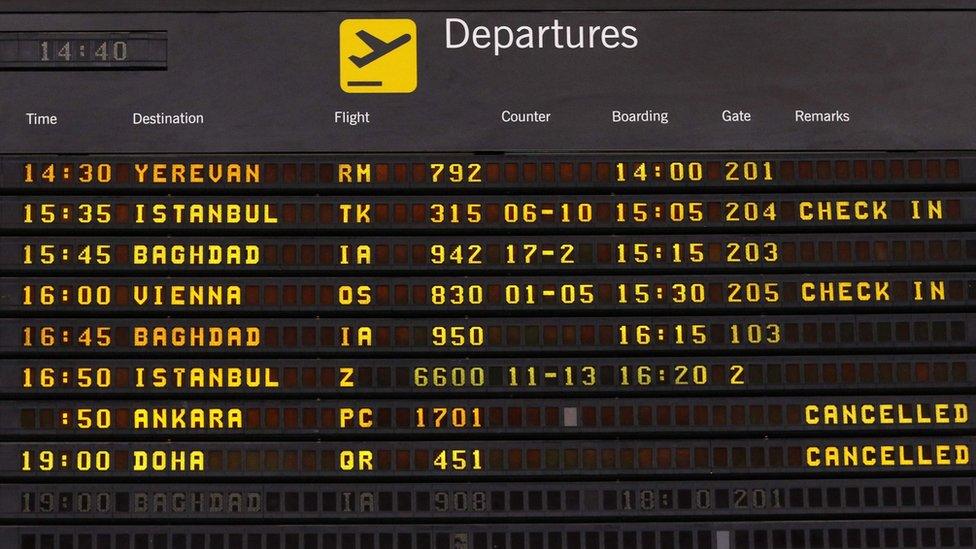
Regional carriers said they would suspend flights to the Kurdistan Region at Baghdad's request
On Wednesday, Kurdish officials said 2.8 million people living in the three provinces that form the Kurdistan Region, as well as "areas of Kurdistan outside the region's administration", had voted in favour of independence.
The announcement came despite a last-minute appeal for the result to be "cancelled" from Mr Abadi, who said the referendum was "unconstitutional".
Mr Abadi vowed to "impose Iraq's rule" and reaffirmed his threat to stop direct international flights to and from the Kurdistan Region.
What do the Kurds say?
The Kurdistan Regional Government (KRG) said, external on Thursday that a ban would be "completely illegal" and amount to "collective punishment against the Kurds".
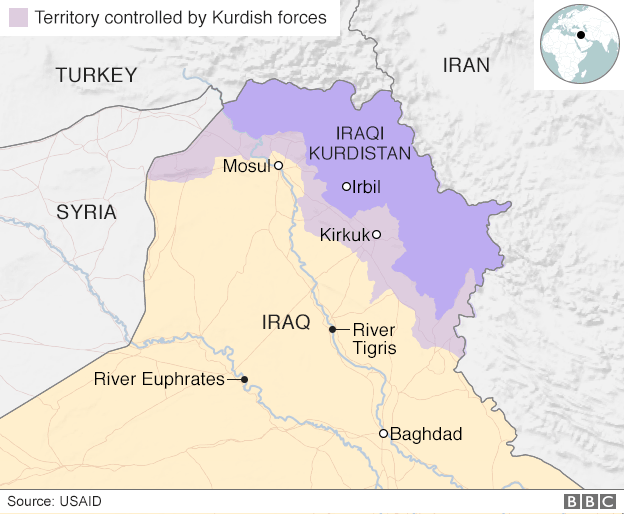
Officials said the airports were already subject to the Iraq Civil Aviation Authority and that any restrictions would affect the battle against so-called Islamic State (IS).
Kurdish Peshmerga forces have driven the jihadist group out of large parts of northern Iraq since 2014 with air and ground support from a US-led coalition.
"We have an international community here, so this is not going to be only against Kurdish people," Irbil airport's director, Talar Faiq Salih, told the BBC on Thursday.
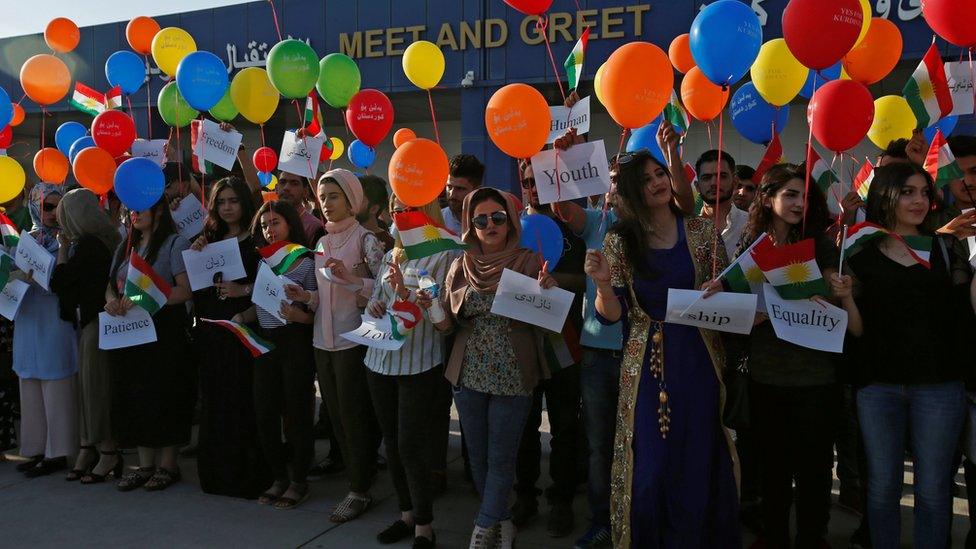
Activists at the airport released balloons bearing messages that urged peace with Baghdad
She later told reporters that humanitarian, military and diplomatic flights were exempt from the ban.
However, Lufthansa, Austrian Airlines, Turkish Airlines and other carriers said they would suspend flights at Baghdad's request.
The KRG also vowed to take legal measures to counter recent decisions by the Iraqi parliament, which on Wednesday asked Mr Abadi to send troops to the oil-rich Kirkuk region and other disputed areas currently controlled by Kurdish forces.
How have Iraq's neighbours reacted?
Turkey and Iran, which have Kurdish minorities and are fiercely opposed to Iraqi Kurds gaining independence, have also increased the pressure on the KRG.
Mr Abadi's office said on Thursday that Turkish Prime Minister Binali Yildirim had agreed to deal exclusively with the central government over crude oil exports. That could result in a key pipeline from the Kirkuk region, which provides the KRG with more than 80% of its income, being cut off.
Iraq's Kurdish region foreign affairs minister says independence is 'inevitable'
On Friday, Iran banned the transportation of refined crude oil products by Iranian companies to and from the Kurdistan Region, the Tasnim news agency reported.
The BBC's Mark Lowen in Irbil says dialogue is the likely way out of this impasse.
But with Iraq facing elections in April, our correspondent adds, there is pressure in Baghdad to remain firm and as yet no sign of compromise.
US Secretary of State Rex Tillerson said on Friday that Washington did not recognise the referendum.
"We encourage all sides to engage constructively in a dialogue to improve the future of all Iraqis," he added.
- Published29 September 2017
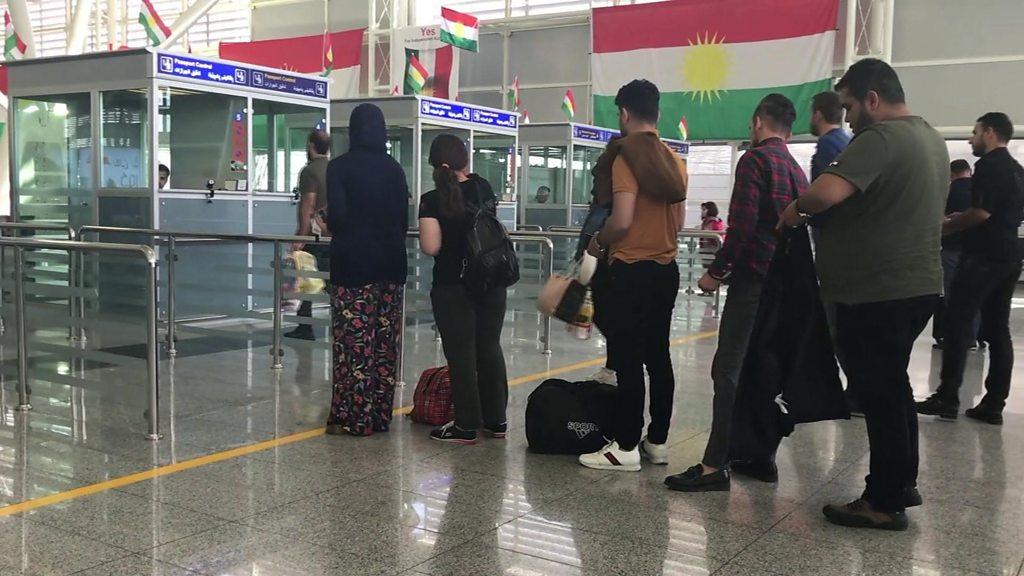
- Published27 September 2017
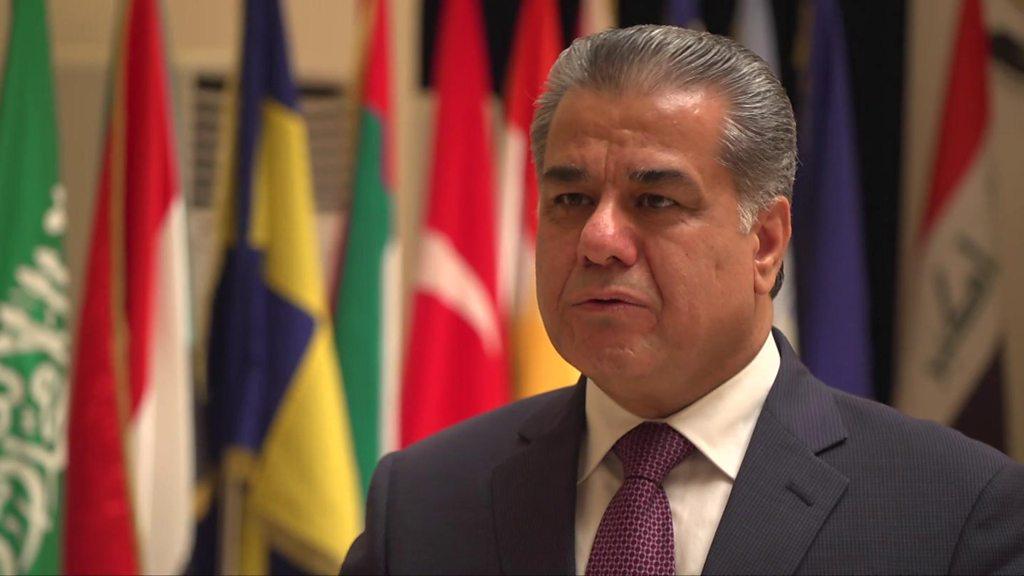
- Published22 September 2017
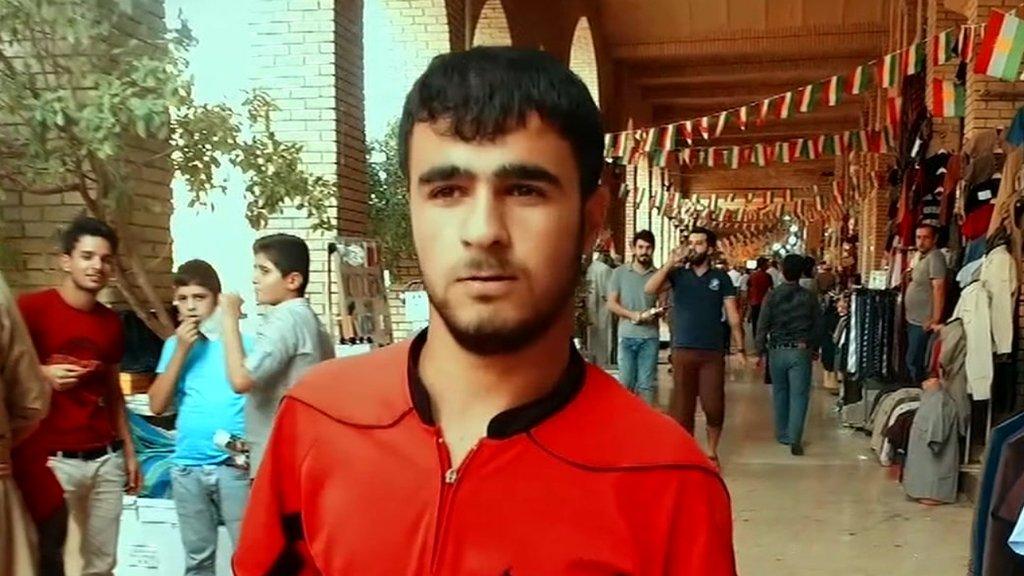
- Published22 September 2017
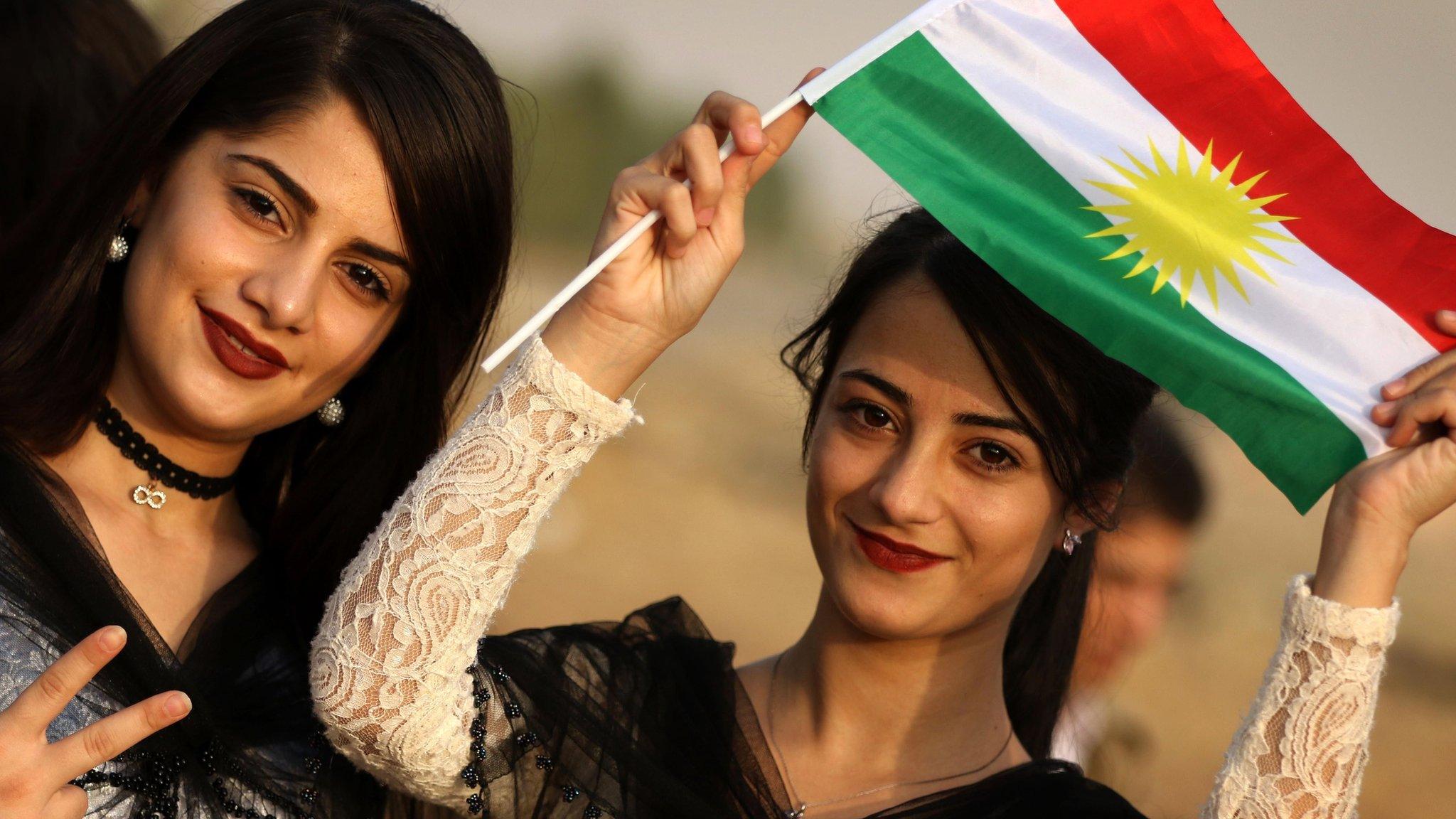
- Published15 October 2019
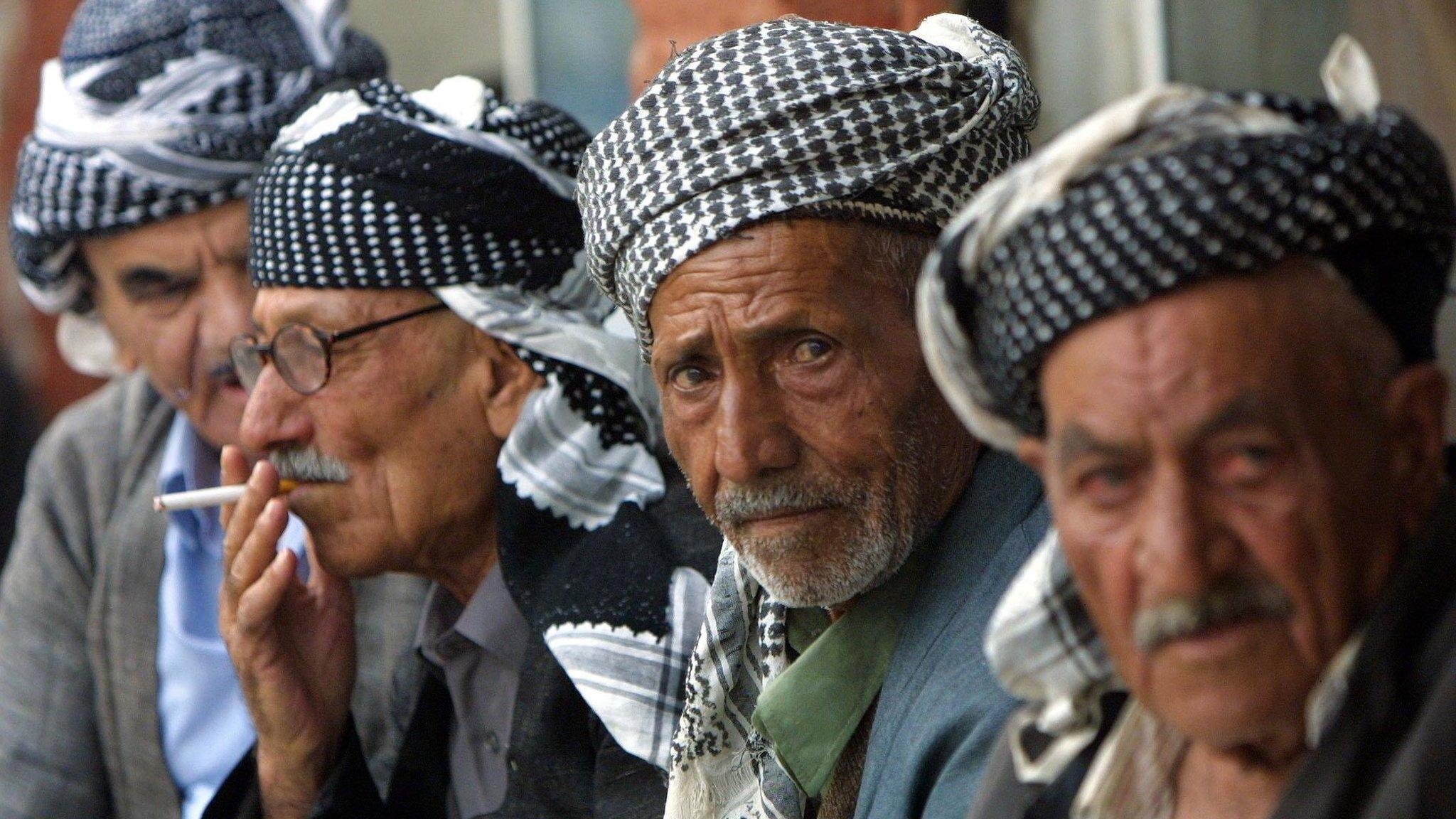
- Published18 September 2017
